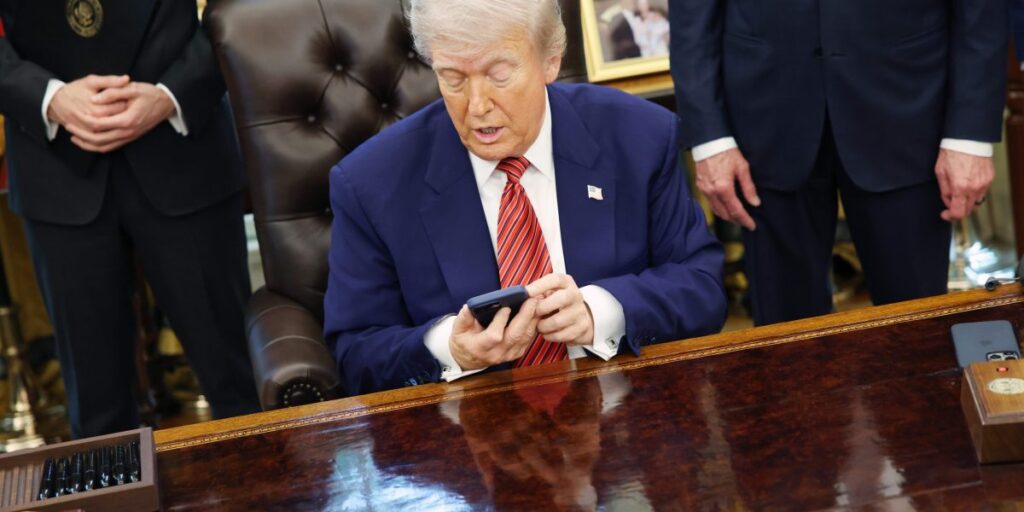
NEW YORK – The Trump Organization’s latest venture into the smartphone market is already facing skepticism, as analysts predict the device will be manufactured in China despite claims of being “built in the United States.”
Breaking: Analysts Question U.S. Manufacturing Claims
The Trump Organization announced on Monday that it will license its name to a new wireless service, Trump Mobile, and release a gold-colored “T1” smartphone in August. While the company promotes the device as “proudly designed and built in the United States,” experts believe the $499 smartphone will likely be produced in China.
Blake Przesmicki, an analyst at Counterpoint Research, stated, “Despite being advertised as an American-made phone, it is likely that this device will be initially produced by a Chinese ODM.” This skepticism arises from the current lack of U.S. manufacturing capabilities for smartphones.
Immediate Impact: Manufacturing Limitations
President Donald Trump has attempted to boost domestic manufacturing through tariffs, yet experts have long highlighted the U.S.’s production limitations. The Trump Organization’s executive vice president, Eric Trump, acknowledged that Trump Mobile would not initially be entirely domestic, indicating the phones might be assembled overseas before their U.S. launch.
“Generally, no phones have been manufactured in the U.S. since the 2G era in over a decade,” said Przesmicki.
Key Details Emerge: Industry Response
Manufacturing barriers in the U.S. are nearly universal in the industry. Leo Gebbie, principal analyst at CCS Insight, noted that there is “no serious chance” of U.S. production for the T1 phones before the August launch. Instead, final assembly might occur in the U.S. to meet marketing claims.
“The idea that this could be replicated in the U.S. in any sort of short- to medium-term timescale is fanciful,” Gebbie commented.
By the Numbers: Tariff Challenges
The importing of phone components, predominantly made in China, poses another challenge due to tariffs imposed by the Trump administration. These tariffs were designed to discourage trade with China, potentially impacting the Trump Organization’s supply chain.
“This absolutely does raise the specter of the Trump Organization mobile falling foul of the tariffs,” Gebbie added.
What Comes Next: Future Implications
The Trump Organization’s emphasis on U.S. manufacturing might be a strategic message to large companies like Apple and Samsung. However, without significant investments in domestic manufacturing, the reality of an American-made smartphone remains distant.
As the August launch approaches, the Trump Organization faces the challenge of aligning its marketing claims with manufacturing realities, all while navigating the complexities of tariffs and global supply chains.







